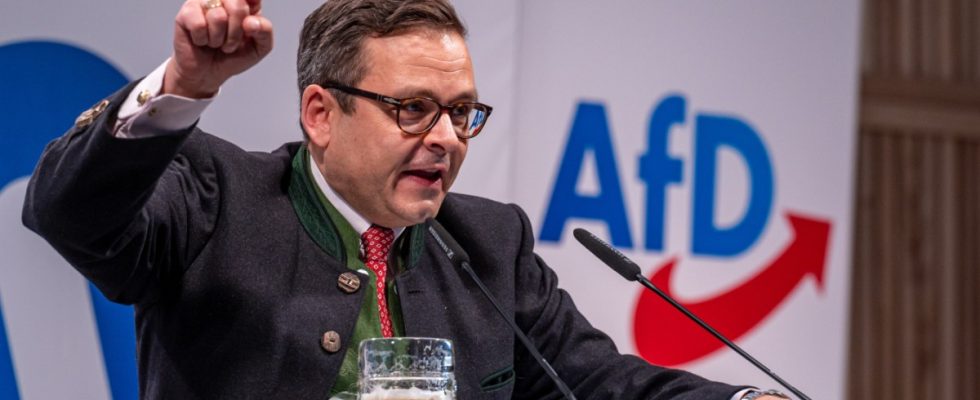The Deggendorf district court has issued a criminal order against the Austrian politician Gerald Grosz for allegedly insulting Prime Minister Markus Söder (CSU) and Federal Health Minister Karl Lauterbach (SPD). Grosz should pay a fine of 90 daily rates of 400 euros, i.e. 36,000 euros, as a spokesman for the district court confirmed on request on Friday. Grosz’s attorney, Alexander Stevens, said he has filed an objection. The acts Grosz is accused of are “evidently not punishable”.
The public prosecutor’s office accuses Grosz, among other things, of having called Söder a “corona autocrat”, “traitor” and “Södolf” on February 22nd at the AfD’s political Ash Wednesday in Osterhofen, Lower Bavaria. He called Federal Health Minister Karl Lauterbach (SPD), among other things, a “horror clown”. The allegations are of insulting political figures and violating the assembly law – Grosz is said to have had a knife with him at the event without permission.
Stevens emphasized that there was no evidence that Grosz actually had a knife with him. The statements, in turn, are in connection with the political work of those affected and “thus can be classified as a continued factual opinion in artistic clothing.” In addition, the penalty order was formally issued illegally. The prerequisite for criminal prosecution for insults is a criminal complaint, which can only be filed by the person concerned – or, in the case of public officials, by their superior. Neither Söder nor Lauterbach have a superior. So far, a criminal complaint can only be found in the files from a subordinate ministerial councilor.
The district court was told that if the lawyer’s objection was received and the public prosecutor’s office did not withdraw its application for a penalty order, the main hearing would take place. Stevens, on the other hand, emphasized that he assumed that the proceedings would be discontinued. Grosz has held several positions in Austria with the right-wing populist parties FPÖ and BZÖ. In 2022 he received 5.6 percent of the vote in the federal presidential election in the neighboring country.

